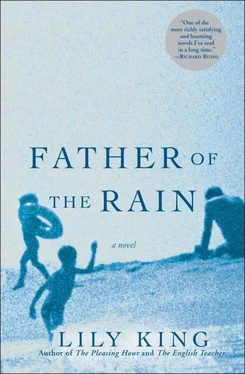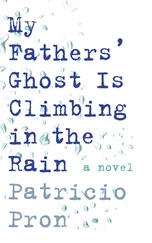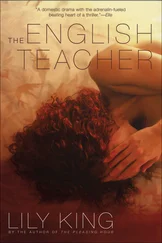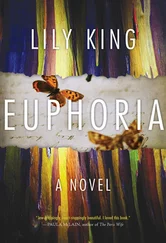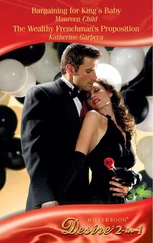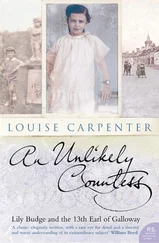“No, man,” he said, irritated. “I grew up in the city. Never needed one.”
“Shit. Really?”
“True. And my cousin just dropped off this truck she doesn’t need at my apartment, and I can’t even use it.”
“You’ve gotta get taught,” Dan said.
“I know it.”
People were still squeezing in the front door. An old boyfriend was at the other end of the table, debating whether to come over. I needed to get out of there. “I’ll teach you,” I said, and handed him the keys to my Datsun.
It was late afternoon, the third week of September. The day had been warm, but now the sun was low and the trees on the chancellor’s street shook out a cool breeze. In the car I helped him adjust the seat. He needed to put it all the way back. “I’m nervous,” he said, before he turned the key in the ignition. I couldn’t believe how beautiful he was. “I really don’t want to crack up your car.”
But he knew what he was doing. He just went very slowly. A line of cars grew behind us. I directed him out of town onto a back road, but still cars were behind us. He didn’t seem to notice. Every time a car approached from the opposite direction he veered off onto the gravel shoulder and I shut my eyes. He slowly moved the car back onto the road after the line of cars had honked passed. He drove in a straight line. He didn’t seem ready to make turns. Occasionally I’d offer up a tip I remembered from driver’s ed, but mostly there was silence between us. And then, eleven miles out of town, he asked if I liked to sing.
Thursdays were the only afternoon we both had free. We met at the car and we drove and we sang. The first song, that first day, was “Maxwell’s Silver Hammer.” It took us the next three Thursdays to exhaust our repertoire of Beatles songs. Singing helped the driving. He went a little faster. Fewer cars trailed behind us. He began to argue with some of my driving suggestions. We came to a stop sign and I waited for him to slow, and when he didn’t I screamed for him to stop but we sailed through it anyway. I called him Mr. Magoo after that. He retaliated, saying I reminded him of Tweety Bird.
“Yeah, well, I’ve been called worse cartoon characters.”
“Like what?”
“My brother calls me Hermey.”
I didn’t think he’d get it but he said, within seconds, “The dentist?” and he looked at me. “I see that.” He kept looking and laughing. “I definitely see that.”
When we were through with the Beatles, he suggested Elton John.
“Which song of Elton’s do you think crossed over to the black community?” he asked. It was the first time he’d mentioned his race. It felt strangely intimate, and I wanted to get it right.
“‘Benny and the Jets,’” I said.
“Exactly,” he said, with a little smile. “We had no idea what the hell it was about, but, man, we loved that song.” Then he started pounding out the beat on the steering wheel.
“Watch the road, Magoo.”
“You watch the road. I’m on drums.” He made the intro noises and we sang, right on the same beat, “ Hey, kids .” Then he sang “ walking in the ghetto ” while I sang “ talk about the weather ,” and we looked at each other and cracked up. Jonathan’s smile felt like the full sun on my bare skin.
After Elton, he launched into “Thunder Road.” And then we sang every Springsteen song we could think of, the fun ones like “Rosalita” and “Cadillac Ranch” and the mournful ones like “Independence Day” and “Nebraska.” When we ran out of Bruce, we were driving through a small town surrounded by open fields and I started to sing “Little ditty ‘bout Jack and Diane” without really realizing it, and he screamed “No!” and stopped the car in the middle of the road.
“Why?”
“That song is too fucking white.”
“Every song we’ve sung so far is white.”
“I know, but—”
“The Beatles and Springsteen are absolutely fine, but John Mellencamp is out?” I felt myself blushing for having made such a blunder. I worried that it had revealed everything to him: my father, Myrtle Street, Ashing — everything I’d worked so carefully to cleanse myself of.
He grinned. “I switch-hit, don’t I? Shit, they talk about double consciousness, but I’ve got triple, quadruple — I’ve got origami consciousness. But I can’t sing that song. People get lynched in towns like that.”
I couldn’t fake it when he wanted to sing songs by groups like Cameo and the Whispers. I didn’t even know the choruses of those songs.
“This is tragic. Where’d you grow up, under a rock?”
“Pretty much.”
We settled on Marvin Gaye.
He told me he grew up in Philadelphia with four brothers, that his mother was a nurse from Georgia, that his father had come to Philly from Trinidad as a boy and had died from a heart attack when Jonathan was fifteen, that his mother had never remarried, that he had a friend from college named Stella who did improv in comedy clubs. I pictured it: the wooden stage, the confident voice, the room erupting. I knew I couldn’t compete with that.
I told him about my fieldwork in Mexico, twelve months in a village in the Sierra Juarez northeast of Oaxaca, and how the children I’d gone to study ran away from me for the first three months. When I did get close enough to observe their play, I found that the villain in many of their imagined stories, someone they called the See-through Demon, was me.
Once we passed an accident, a car on its side in a gully and three police cars and a fire truck along the shoulder. Jonathan drove slowly by.
“My mother was hit by a car,” I said. It felt like something he should know.
“When?”
“Nine years ago. She died.”
“Right away?”
“Yup.”
I saw his hand flinch on the steering wheel, lift off, and plant right back down again, all in less than a second. It gave me hope, that tiny impulse to touch me that he’d checked.
Sometimes Jonathan would see an animal out of the corner of his eye and stop the car. A fox cutting across a field, a porcupine at the base of a tree. Once we saw a long wide V of Canada geese drop down into a small farm pond all at once, forcing up a great white fan of water. We rolled down the windows and heard all their honking and wing smacking. It was dusk. Jonathan kept binoculars in my glove compartment by then, so we took turns looking at their long dark necks and prim white chinstraps, laughing at how loud and rowdy they were at the start of their long road trip.
When we got back on the road, we passed a sign that said STRATHAM 2 MILES. “I’ve read about that place,” he said. “It’s the Knights’ headquarters.”
“The Knights?”
He looked to see if I was seriously asking. I was. “The Klan,” he said. “Not the place you want to be stopped driving a white girl’s car without a license.” The road was empty and he made a wide U-turn.
Just a few miles out of Ann Arbor, and it was a different world for Jonathan.
We never did anything together after driving. We said goodbye on the street. In the car, while he watched the road, I watched him: his severe profile, the heavy ledge of his brow, the taut muscles of his jaw, and then when he turned unexpectedly, laughing at one of my nervous quips, that smile, his cheeks suddenly boyish. Sitting beside him in my car was becoming a form of torture.
“You’ve got to just kiss him yourself, Daley,” Julie said. “Anyone can see that he’s crazy about you.” But she didn’t know what she was talking about. We’d run into him once on campus, talked awkwardly, that was it.
I couldn’t make the first move. I never had and I never would. She thought I was anachronistic. She proudly claimed that she made the first move in every serious relationship she’d ever had. Men are the tortoises of love, she often said. But my interest and attraction felt too strong. In the car I had to rein in everything: my hands, my questions, my fascination. Sometimes it felt like there was a part of me inside him that I ached to get to.
Читать дальше
